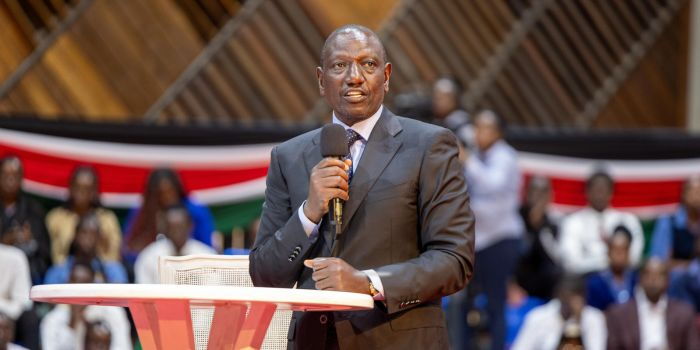CEOs Warn Ruto’s Sudden Tax Changes Could Hurt Kenya’s Economic Growth
More than 1,000 Chief Executive Officers (CEOs) have raised concerns over the government’s frequent and sudden changes in tax policies, warning that this unpredictability could slow down Kenya’s expected economic recovery in 2025.
A recent survey conducted by the Central Bank of Kenya (CBK), known as the CEO’s Survey, revealed that business leaders are urging the government to establish clear and predictable tax policies.
According to the report, the private sector is calling for more certainty in taxation to boost investor confidence and economic growth.
The CEOs who participated in the survey are mainly from major private sector organizations, including the Kenya Association of Manufacturers (KAM), the Kenya National Chamber of Commerce and Industry (KNCCI), and the Kenya Private Sector Alliance (KEPSA). They argued that constant changes to tax structures create uncertainty, making it harder for businesses to plan and invest.
CEOs Predict Economic Growth but Highlight Key Challenges
Despite their concerns over taxation, the CEOs expressed optimism about Kenya’s economic outlook for 2025. They believe the economy has the potential to grow, creating more job opportunities for Kenyans. Their optimism is based on expectations of improved weather conditions, a stable exchange rate, declining interest rates, and controlled inflation.
However, they emphasized that the cost of doing business remains high, mainly due to unpredictable tax policies. The uncertainty surrounding taxation is making it difficult for businesses to operate efficiently.
Frequent Tax Changes Since Ruto Took Office
Since President William Ruto assumed office in 2022, the government has introduced multiple tax adjustments and statutory deductions, affecting both employers and employees. These changes include new policies on affordable housing, the Social Health Authority (SHA), and the National Social Security Fund (NSSF), among others.
For instance:
- Under the SHA policy, employees are required to contribute 2.75% of their gross salary toward healthcare.
- Individuals in the informal sector or without formal employment must pay Ksh300 per month to access healthcare services.
- In December 2023, President Ruto signed a business law that increased NSSF contributions from Ksh2,160 to Ksh4,320 per month.
- After a High Court ruling upheld the Affordable Housing Act of 2024, a new tax rate was set at 1.5% of an employee’s gross salary. Self-employed individuals are also required to contribute 1.5% of their gross income to the housing scheme.
- Employers must match the 1.5% contribution, bringing the total deduction per employee to 3%.
These sudden policy shifts have sparked mixed reactions among Kenyans, with many debating their long-term impact on businesses and individual incomes.
CEOs Call for Better Access to Business Loans
Beyond taxation, business leaders are also pushing the government to ease access to credit for companies. Despite a decline in interest rates, many firms still struggle to secure loans, limiting their ability to expand and create jobs.
The CEOs urged the government to implement policies that encourage lending to businesses, arguing that a strong private sector is essential for Kenya’s economic stability.
As debates over taxation and economic policies continue, business leaders hope the government will take their recommendations seriously to create a more stable and business-friendly environment.
Join Gen z and millennials TaskForce official 2025 WhatsApp Channel To Stay Updated On time the ongoing situation https://whatsapp.com/channel/0029VaWT5gSGufImU8R0DO30


